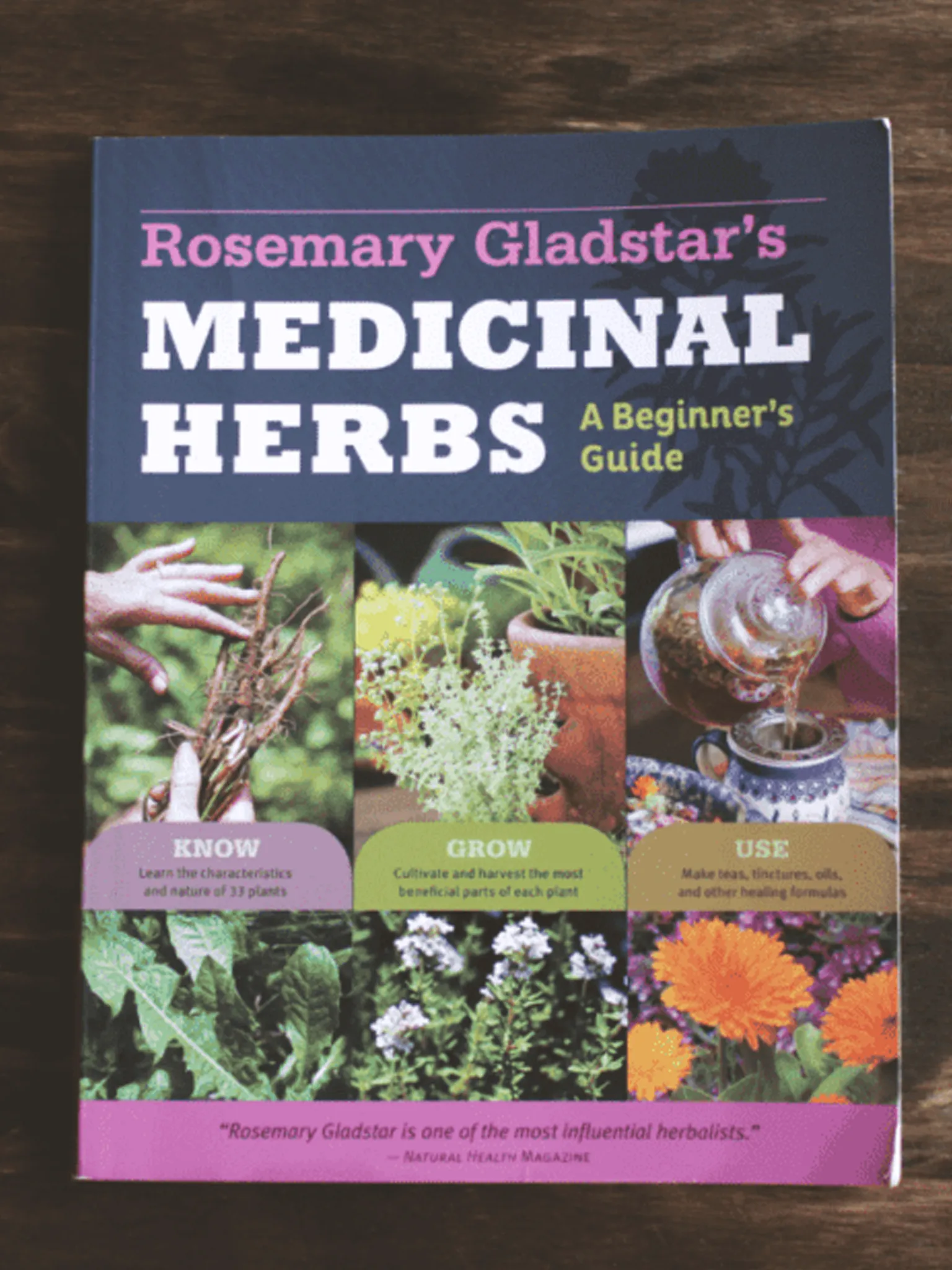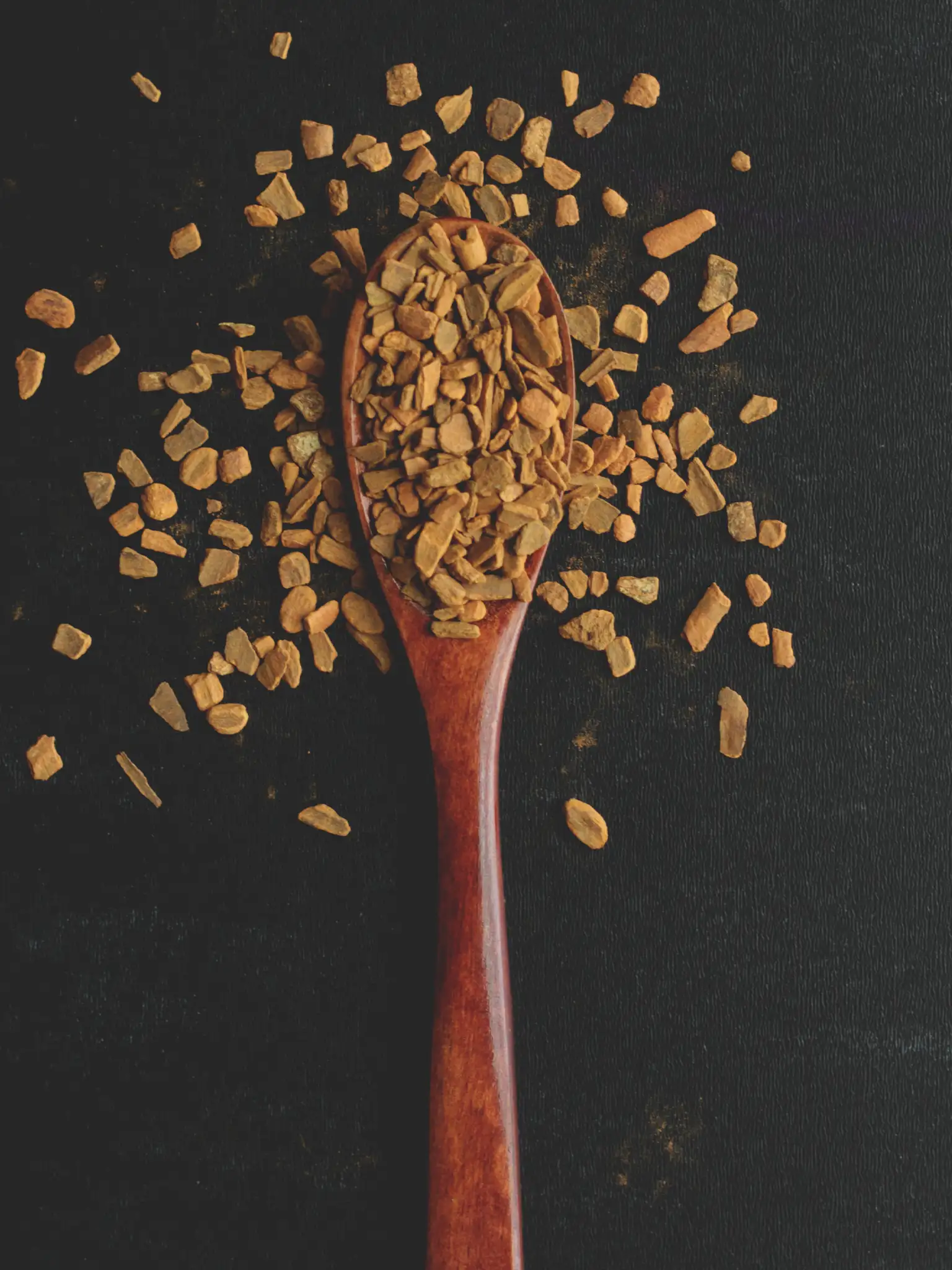This spicy cinnamon ginger herbal tea recipe can help relieve painful menstrual cramps. Both cinnamon and ginger have anti-inflammatory and antispasmodic properties that can relax your muscles, soothe pain, and reduce inflammation.
This recipe comes from the book Medicinal Herbs: A Beginner’s Guide by Rosemary Gladstar. This was the very first book I bought when I started learning about herbal medicine. It’s an excellent resource for beginner herbalists, and I highly recommend it!

Overview of Cinnamon Ginger Herbal Tea
The recipe involves infusing cinnamon and ginger in water for 30 minutes. Strain and serve with honey to taste. *Drink up to 3 times a day as needed to help relieve menstrual cramps.
Equipment Needed
- Small pan with a lid
- Fine mesh strainer
- Your favorite mug or tea cup
Ingredients

- Water (1 cup)
- Cinnamon (1 teaspoon cinnamon chips): Cinnamon has anti-inflammatory properties that can help ease cramping.
- Ginger (1 teaspoon fresh grated ginger root or chopped and dried): Ginger can reduce inflammation and relieve pain.
- Honey: Optional
Instructions Summary
- Infuse: In a small pan, bring the water to a boil. Remove the pan from heat and add in the cinnamon and ginger. Cover the pan with a lid, and let the mixture infuse for 30 minutes.
- Strain: Strain the infusion into your favorite mug or tea cup.
- Serve: Drink the herbal tea as is, or add milk and honey to taste.
Join Our Newsletter
Sign up for our monthly newsletter to get easy gardening tips, seasonal to-dos, and herbal recipes delivered right to your inbox.
Thank you!
Check your email to confirm your subscription.

Cinnamon Ginger Herbal Tea for Menstrual Cramps
Equipment
- Small pan with a lid
- Fine mesh strainer
- Your favorite mug or tea cup
Ingredients
- 1 cups water
- 1 teaspoon cinnamon chips
- 1 teaspoon ginger fresh grated
- honey
Instructions
- In a small pan, bring the water to a boil. Remove the pan from heat and add in the cinnamon and ginger. Cover the pan with a lid, and let the mixture infuse for 30 minutes.
- Strain the infusion into your favorite mug or tea cup.
- Serve the herbal tea as is, or add milk and honey to taste.
*Disclaimer: Many herbal teas are considered to be generally safe, although there are circumstances when you should not take a particular herb. I am providing a brief and general overview of these herbs for educational purposes only. It’s always best to consult with a qualified healthcare practitioner or herbalist who can help you determine the appropriate dosage based on your individual needs.
Both cinnamon and ginger have anti-inflammatory properties that can help ease menstrual pain. They also have antispasmodic properties that can help relax muscles and soothe cramping.
Drinking cinnamon ginger tea every day in moderation is generally safe for most people. However, you should limit consumption to 1-3 cups per day. Excessive cinnamon consumption can lead to adverse health issues and affect liver function.
Pregnant or nursing people should avoid high amounts of ginger because it can stimulate contractions. Individuals with bleeding disorders, on blood-thinning medications, or with certain gastrointestinal issues (like gallstones) should consult a healthcare provider before consuming ginger or cinnamon regularly.
References
Jaafarpour, M., Hatefi, M., Khani, A., & Khajavikhan, J. (2015). Comparative effect of cinnamon and Ibuprofen for treatment of primary dysmenorrhea: a randomized double-blind clinical trial. Journal of clinical and diagnostic research : JCDR, 9(4), QC04–QC7. https://doi.org/10.7860/JCDR/2015/12084.5783
Jaafarpour, M., Hatefi, M., Najafi, F., Khajavikhan, J., & Khani, A. (2015). The effect of cinnamon on menstrual bleeding and systemic symptoms with primary dysmenorrhea. Iranian Red Crescent medical journal, 17(4), e27032. https://doi.org/10.5812/ircmj.17(4)2015.27032
Ozgoli, G., Goli, M., & Moattar, F. (2009). Comparison of effects of ginger, mefenamic acid, and ibuprofen on pain in women with primary dysmenorrhea. Journal of alternative and complementary medicine (New York, N.Y.), 15(2), 129–132. https://doi.org/10.1089/acm.2008.0311













